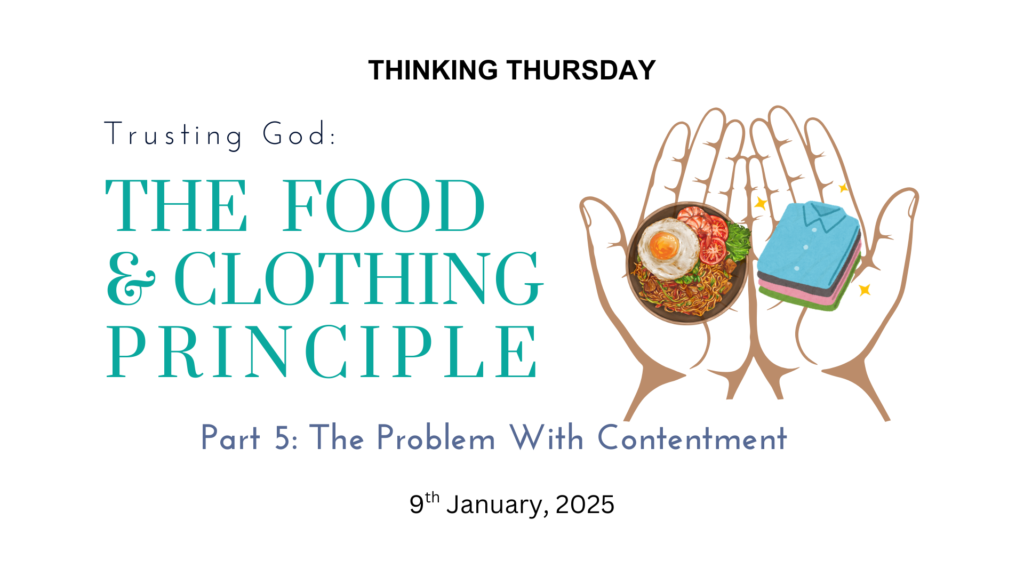THE PROBLEM WITH CONTENTMENT
Life is not about accumulation. Jesus said to be content with food and clothing and to be rich towards the kingdom of God (Matthew 6:33, 1 Timothy 6:8). The addition of “these things” comes as a result of seeking the Kingdom of God first. When you prioritize His Kingdom, God ensures you are provided with food and clothing. Your job is to make seeking His Kingdom your top priority.
There’s no excuse for buying shiny shoes or expensive outfits when you can’t afford school fees or food. If you are wearing asoebi (uniform dress for occasions) while starving, you’re in error. Some people are drowning in debt yet still contribute extravagant offerings, thinking it’s sowing a seed. No, it’s theft! The Bible says, “Do not give your eyes sleep or slumber” until you settle your debts (Proverbs 6:4).
When I was a student, the trend was matching coloured ladies hats worn during wedding celebrations. It cost four thousand naira to make one. That amount could almost buy food for nearly two weeks! Yet, some people lacked basic necessities while parading around in colorful hats. Pink, green, lemon—people spent on hats to match outfits instead of meeting their needs.
START FROM THE BEGINNING: TRUSTING GOD (PART 1)
FINANCIAL PRUDENCE
How can you approach someone for help financially when you’ve wasted money on frivolities? How can you, in good conscience, borrow money when you’ve spent yours on non-essentials? Sell the asoebi, sell the shoes, sell what you must to meet your needs before asking for help.
This issue cuts deep in the church of God and many people claim to love Jesus but ignore basic financial prudence. We must change this narrative.
If you haven’t already, listen to my seminar on Financial Prudence here: https://bit.ly/fars-fp. It’s a very practical and interactive teaching on how to spend money wisely and use basics (like soap, water, gas, clothes) in a way that extends their usage time.
Financial discipline isn’t optional—it’s a command. Let us align our spending with God’s principles and avoid unnecessary burdens on ourselves and others. Seek the Kingdom first, prioritize needs over wants, and God will provide. Focus on what truly matters, and God will take care of the rest.
Watch: Debunking Marital Fantasies
